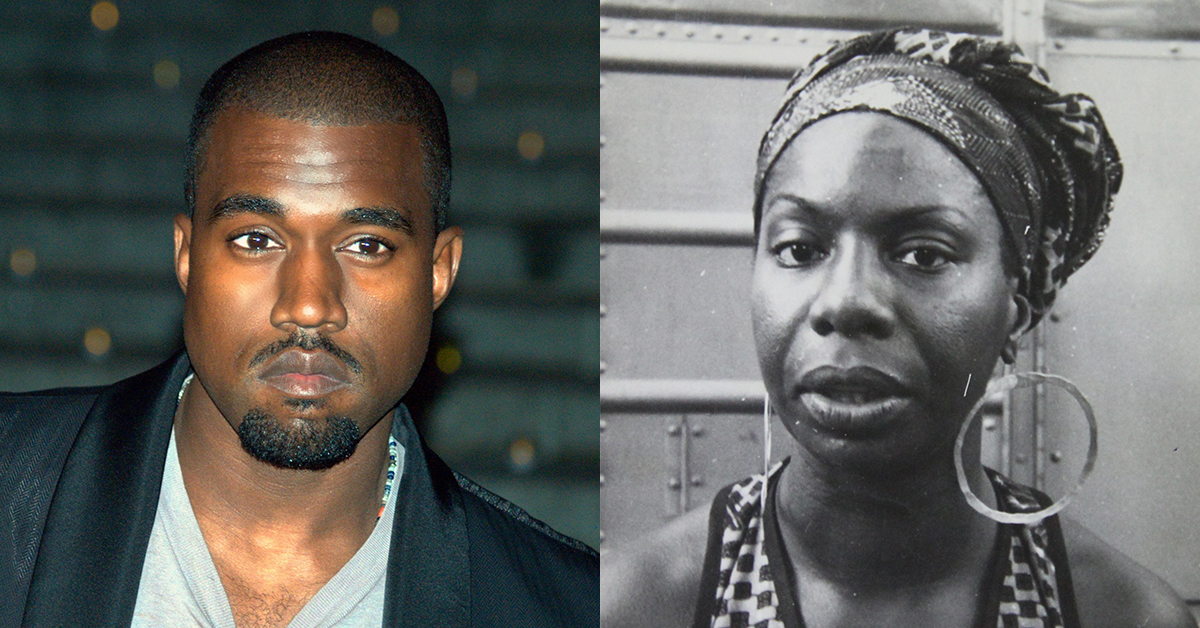Unless you are a fan of both Nina Simone and Kanye West, her influence on Kanye’s discography may not be so apparent. Whether it is her vocals, lyrics or beats, Kanye has used her likeness on some of his most popular songs. However, what is it about Nina Simone that fuels Kanye’s creativity and why hasn’t he spoken up more about her impact on his music?
His silence and recent political controversy has led to a debate on his usage of her material while supporting political figures that contradict with her pro-Black art. One song that has created such a debate was Yeezy’s “Blood on Leaves,” which sampled Nina Simone’s vocals from “Strange Fruit.”
Blavitize your inbox! Join our daily newsletter for fresh stories and breaking news.
Nina Simone’s “Strange Fruit” is a rendition of Billie Holiday’s 1939 song, which paid homage to a poem written by Abel Meeropol about the lynching of Black bodies, as stated in the lyric, “Black bodies swinging in the southern breeze.” The song was once blacklisted to prevent an uprising. As of now, the song is thought to be one of the catalyst in creating a call to action for an end to injustice and urgency of a civil rights movement.
Kanye’s “Blood on Leaves” subject matter detailed the tribulations of fame and the strain it can cause in relationships. Some people believed Kanye's use of Nina Simone’s “Strange Fruit” diminished the original song's historical importance on Black culture and makes light of Black oppression.
i knew we'd become desensitized to black plight when Kanye tried to turn Strange Fruit into a club banger
— Sid (@sidsidtoosid) November 8, 2017
Optimistically, one could argue Kanye using the sample to dismantle a notion of uniformity in the Black experience brings awareness to another layer of the Black experience — to be be Black and dealing with the media pressure of having your failures hanging on tree of a public opinion. However, criticism on Kanye’s insensitivity to the Black plight could also be considered due to his support of Trump and his TMZ antics.
It creates a dialogue of numerous questions, like how much weight does the meaning of original sampled material have on new music? Also, is there a disconnect in people's interpretation of equality post-civil rights era?
